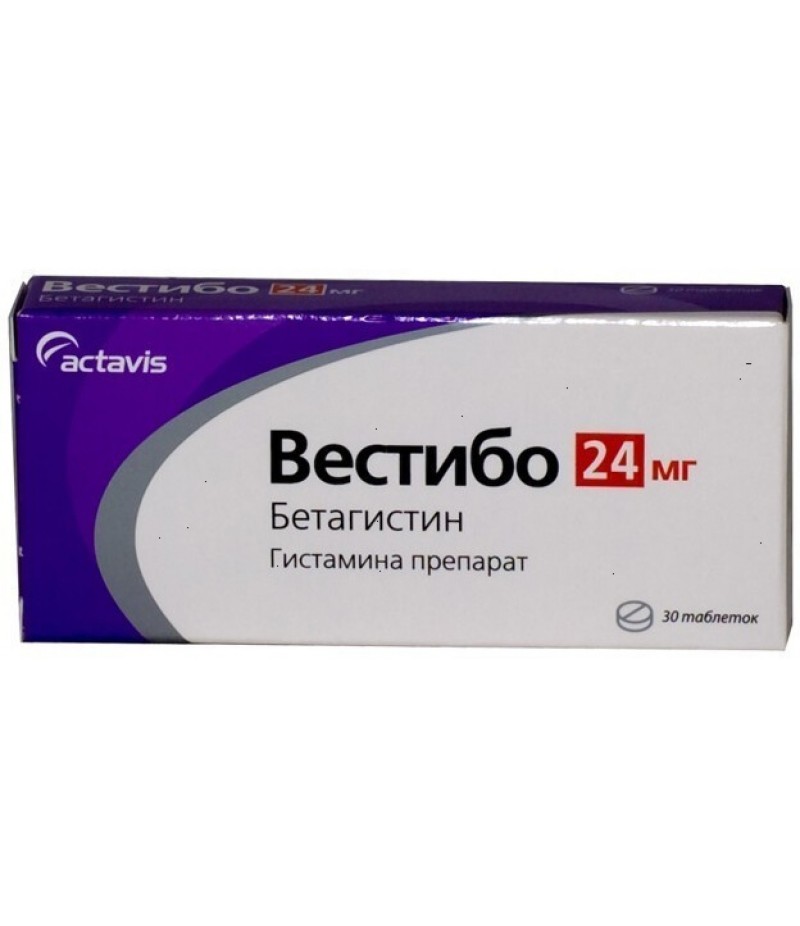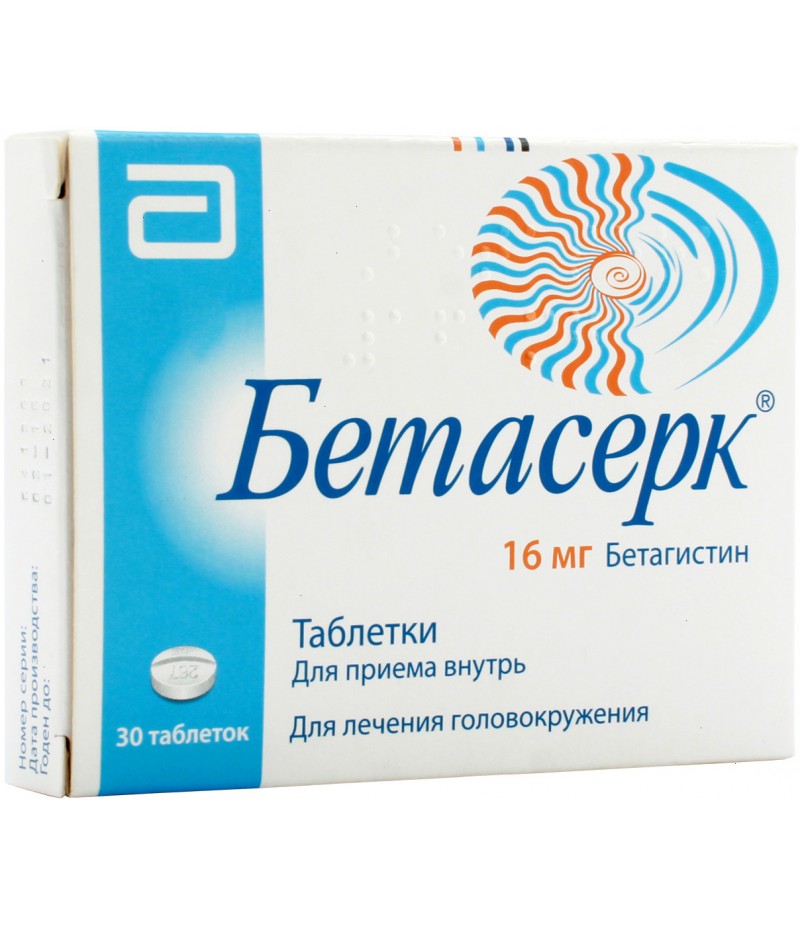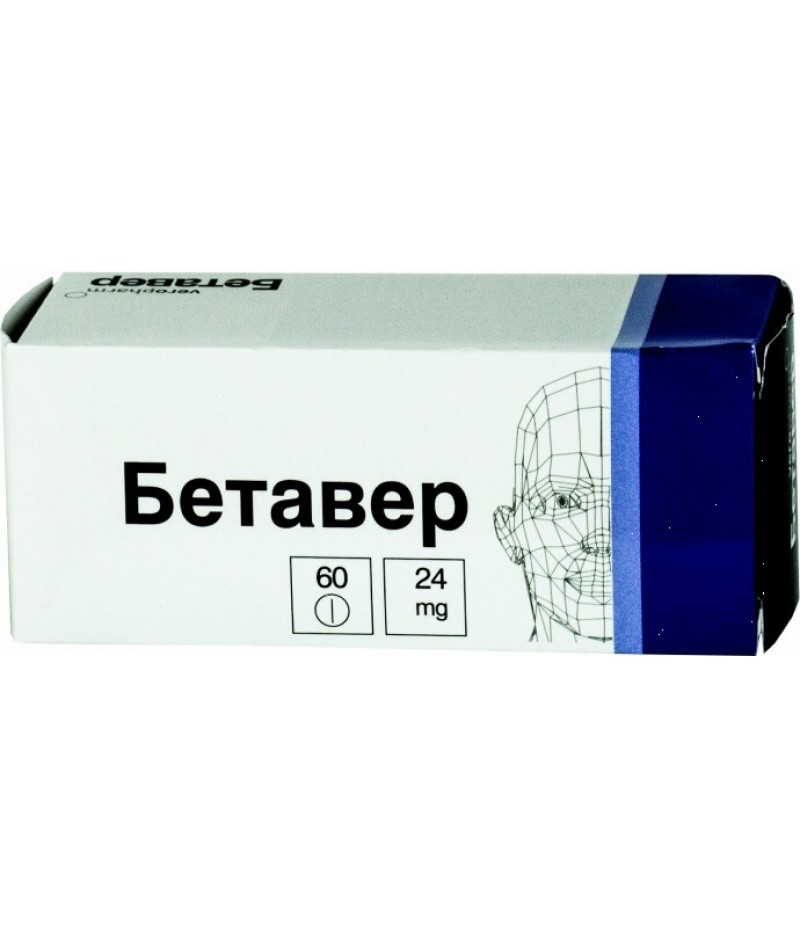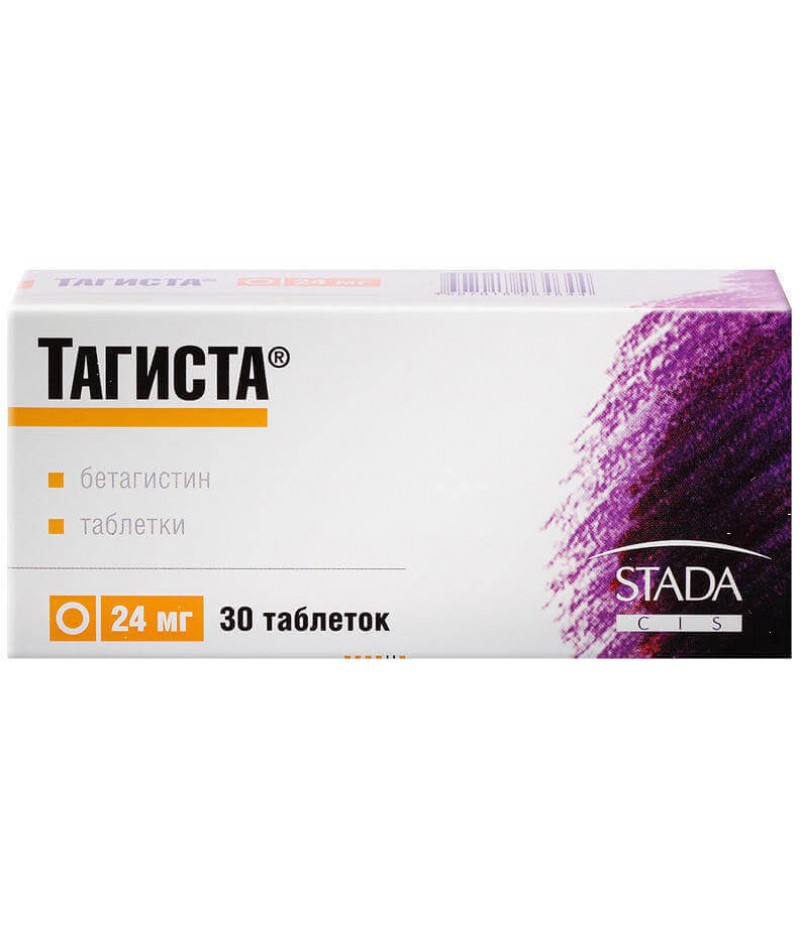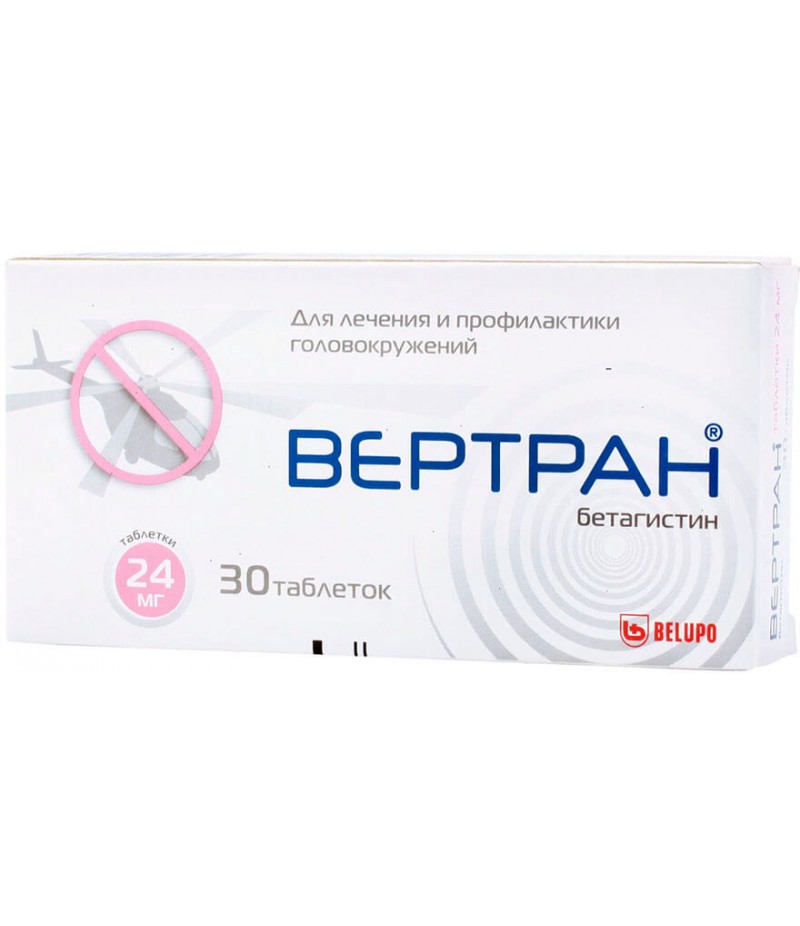Vestibo tabs 24mg #30
- $19.99
- 3 or more $19.75
- Availability:In Stock
Vestibo instruction for useReed more and buy Vestibo on this pageCompositionVestibo tablets contain the active substance betahistine dihydrochloride. Depending on the dosage, one tablet contains 8.16 or 24 mg of the active substan..
Tags: tabs
Vestibo instruction for use
Reed more and buy Vestibo on this page
Composition
Vestibo tablets contain the active substance betahistine dihydrochloride. Depending on the dosage, one tablet contains 8.16 or 24 mg of the active substance. Also, the tablets contain additional ingredients: MCC, povidone K90, lactose monohydrate, colloidal silicon dioxide, stearic acid, crospovidone, water.
Form of issue
Vestibo 8 mg are flat tablets that have beveled edges, round shape, whitish color, on one side there is a "B 8" mark on the tablet.
Vestibo 16 mg - flat tablets, which have beveled edges, round shape, whitish color, on one side on the tablet there is a marking "B 16" on the other side - risk.
Vestibo 24 mg - biconvex tablets whitish in color, round shape, on the one hand - risk.
pharmachologic effect
Betagistin, the active substance of the drug, is a synthetic analogue of the natural mediator of histamine. The drug exhibits a pronounced histamine activity with respect to H1 and H3 receptors. Also, the active substance acts vasodilator. The agent has a direct effect on the cochlear blood flow and the state of the vestibular apparatus. Betagistin influences the histaminergic system, which determines the normal functions of the vestibular systems.
Histaminergic neurons are responsible for carrying out impulses from receptors and vestibular nuclei.
Under the influence of betagistin, induced and spontaneous impulses from vestibular structures are suppressed. Betagistin improves microcirculation, increases the level of permeability of the capillary walls, stabilizes endolymphatic pressure in the inner ear.
In the treatment of Vestibo, the condition of patients is improved, in which there are problems with the functioning of the vestibular apparatus, the intensity and frequency of dizziness are reduced, and the manifestations of noise in the ears are eliminated. People who suffer from hearing loss, note its improvement. There is also an indirect effect of the drug on the vessels of the inner ear, an increase in the lumen of the vessels, which ultimately leads to an improvement in blood flow. Vestibo promotes the activation of cerebral blood flow.
The agent does not worsen the concentration of attention, does not affect the body as a sleeping pill or sedative. The agent does not affect the secretion of the glands of the digestive tract, it does not interact with H2-histamine receptors. Anti-edematous, anti-allergic, anti-inflammatory effect is weak and does not have clinical significance.
Pharmacodynamics and pharmacokinetics
In the body, the active substance is rapidly absorbed, the level of binding to plasma proteins is low, the maximum concentration is observed after 3 hours after taking the drug.
It is excreted as a metabolite through the kidneys for 24 hours. The half-life is between 2 and 4 hours.
Indications for the use of tablets Vestibo
Such indications for the use of Vestibo are defined:
violations of the vestibular and labyrinthine nature (pain and tinnitus, dizziness, headache, hearing impairment, fainting, vomiting and nausea, disturbance of spatial orientation and balance);
edema of the labyrinth of the inner ear;
vestibular dysfunction with an infectious etiology;
manifestations of posttraumatic vestibular dysfunction;
dizziness of a benign nature that manifest after surgical interventions;
Ménière's disease.
Also, the drug is used for the complex therapy of cerebral atherosclerosis, posttraumatic encephalopathies, vertebrobasilar insufficiency. From what Vestibo tablets can be used, and in what cases is it appropriate, the doctor will tell in detail.
Contraindications
The drug can not be taken in the following cases:
high sensitivity to the components of the agent;
bronchial asthma, the manifestation of bronchospasm;
pheochromocytoma;
exacerbation of stomach and duodenum ulcers;
the first trimester of pregnancy;
With care, the drug is prescribed for children, people suffering from peptic ulcer, hypotension, as well as during pregnancy and breastfeeding.
Side effects
Basically, the remedy is well tolerated by the patient, but seldom there can be side effects, which, as a rule, are poorly expressed. In particular, the manifestation of dyspeptic phenomena, allergic reactions, headache is possible.
Instructions for use Vestibo (Method and dosage)
Before the patient starts taking Vestibo tablets, the instructions for using the drug must be carefully studied. The medicine should be drunk, not liquid, plenty of liquid. For adults, the drug is prescribed in a dosage of 8 or 16 mg 2 to 4 times a day. Dosage is determined depending on how the patient transfers the remedy, how serious the disease is, and also on his body weight, age and general health. A maximum dose of 48 mg of the drug is allowed per day, that is, tablets in a dosage of 24 mg can be taken no more than 2 times daily.
Instructions for use Vestibo provides a long course of treatment with the drug. However, the final decision on the duration of therapy is made by the treating specialist. A noticeable therapeutic effect will be observed a few months after the start of the Vestibo therapy course.
Overdose
When taking too large doses of the drug can develop such symptoms: a feeling of heat, a headache, redness of the face and body in the upper part, a feeling of heat, dizziness, fainting, hypotension, tachycardia, bronchospasm. In this case, immediately cancel the drug, wash the stomach, apply enterosorbents. If there is such a need, symptomatic treatment is performed.
Interaction
With simultaneous administration of antihistamines, the effect of taking the drug is reduced.
Terms of sale
You don't need a prescription to buy Vestibo online.
Storage conditions
Preserve Vestibo at room temperature, in a dark and dry place.
Shelf life
Keep Vestibo tablets 8 mg and 16 mg can be 3 years, Vestibo tablets 24 mg - 2 years.
special instructions
It should be borne in mind that a pronounced effect in the therapy process appears only a few months after the start of the course of treatment for these drugs.
Children
In the process of safety research when using this drug in children, experts came to the conclusion that Vestibo for the treatment of children is not recommended.
In pregnancy and lactation
To date, there is no reliable information about how the drug affects the developing fetus. Categorically, Vestibo should not be used for treatment during the first weeks of pregnancy, and also during organogenesis. During the second and third gestation period, the drug can only be used as directed by the doctor after it carefully assesses the potential benefits and harms of such therapy. In the process of treatment, it is important to carefully monitor blood pressure. During breast-feeding, the drug should be taken only after the temporary cessation of lactation. After the end of such treatment, the process of feeding can be restored in 3-5 days after the last intake of Vestibo.
Reviews of Vestibo
Going to the thematic forum and leaving feedback on Vestibo, people in most cases note that after a long treatment the remedy is marked by the disappearance of the expressed symptoms, the improvement of the general state of health. However, there are a number of reviews that indicate that after treatment, there was no desired effect, or it disappeared some time after the end of therapy. Therefore, judging by the reviews, this drug can effectively remove unpleasant symptoms, but in general the main problem still remains unsolved. Also, the advantages of the drug are its acceptable cost, convenient dosage (the presence of tablets 8, 16 and 24 mg).

